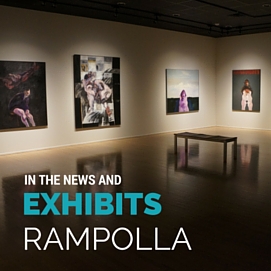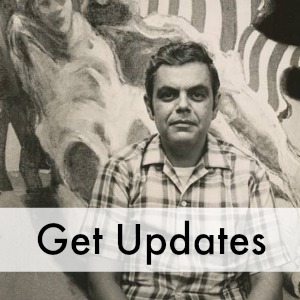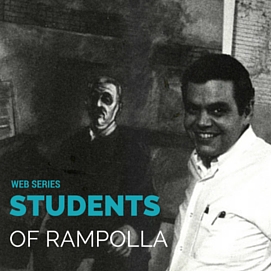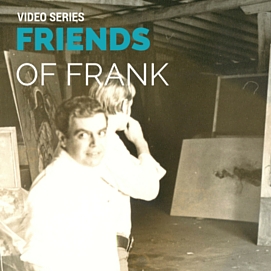In the turbulent Sixties, many artists were escaping to flat, pretty colored worlds with an eye to the business of art in New York. Rampolla’s contemporaries were painting soup cans, comic book art and making junk sculptures. He meanwhile was drawing exquisite nudes. Their works made art look easy. His works perplexed. Their works aimed to please. His defied the American bourgeoise. At that time came the first stirrings of our depthless, ahistoric present. Dada became easy to appropriate and rejection of self, fervor and truth was “in” for American Artists. Frank, however, maintained a direct reaction to life. It was to his own life he reacted, and in doing so, made art which challenges us to reconsider our positions. Not bound to the pressures of the bourgeoning art market, he used modes true to what he was, a New York City American of Italian heritage. He was free to accept his artistic geneology. By example, his admiration for Jules Pascin and Egon Schiele was based solely on mutual interest in the erotic. And Rampolla’s work stands as a distinct example that the erotic is important a subject as is consumerism of pop and dada-made-chic. The erotic element in his work is certainly more human, being non-materialistic and it goes right to the core without superficial representation. What people cannot accept – what they dismiss and reject as “difficult art”, too much trouble to appreciate, in actuality freed Rampolla to do something higher. Being free to the desire to make acceptable art, removed the influences of inhibition and self-censorship from his creativity. When a minor furor grew over his submissions to an Atlanta GA Museum show, he withdrew his works. As he related this account to me, he had a little smile of resolve and resignation on his face. I knew he was conscious, as Beethoven was, that he was creating for a better audience. And as he said of his work, “Music if freer, it doesn’t have to look like something”, he was a bit amused that his full frontal, gestural truthfulness was nearly admitted into a 1970 show in a major southern city.
– Dennis Potokar




